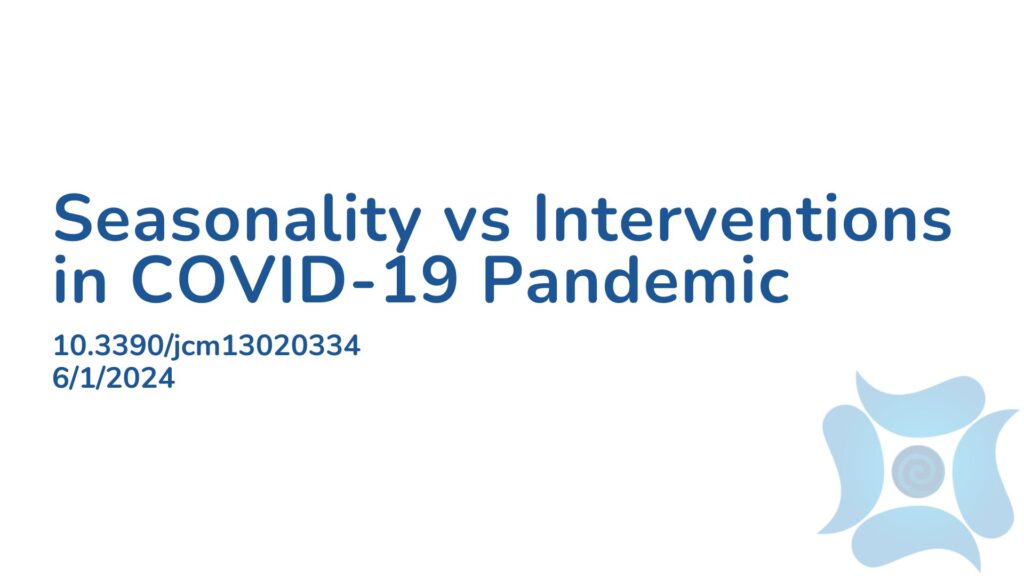Summary:
On May 5, 2023, the World Health Organization officially declared an end to the COVID-19 pandemic. Government measures, known as non-pharmaceutical interventions (NPIs), included travel restrictions, stay-at-home orders, mask mandates, school closures, and social distancing. While vaccines introduced in 2021 were initially considered effective, subsequent studies questioned their overall impact, suggesting waning effectiveness over time. This study focuses on Northern Europe, examining the interplay between seasonality, NPIs, and vaccination in influencing the pandemic. The hypothesis explores whether the perceived success of interventions might be partially due to seasonal patterns. The findings show a strong correlation between pandemic waves and the seasonality of human beta-coronaviruses, while evidence supporting a clear impact of NPIs or vaccination on pandemic progression is inconclusive. This suggests that the perceived effects of NPIs and vaccines may be influenced by coronavirus seasonality. Policymakers should consider these findings when planning for future pandemics.
Abstract:
Background: Most government efforts to control the COVID-19 pandemic revolved around non-pharmaceutical interventions (NPIs) and vaccination. However, many respiratory diseases show distinctive seasonal trends. In this manuscript, we examined the contribution of these three factors to the progression of the COVID-19 pandemic.
Methods: Pearson correlation coefficients and time-lagged analysis were used to examine the relationship between NPIs, vaccinations and seasonality (using the average incidence of endemic human beta-coronaviruses in Sweden over a 10-year period as a proxy) and the progression of the COVID-19 pandemic as tracked by deaths; cases; hospitalisations; intensive care unit occupancy and testing positivity rates in six Northern European countries (population 99.12 million) using a population-based, observational, ecological study method.
Findings: The waves of the pandemic correlated well with the seasonality of human beta-coronaviruses (HCoV-OC43 and HCoV-HKU1). In contrast, we could not find clear or consistent evidence that the stringency of NPIs or vaccination reduced the progression of the pandemic. However, these results are correlations and not causations.
Implications: We hypothesise that the apparent influence of NPIs and vaccines might instead be an effect of coronavirus seasonality. We suggest that policymakers consider these results when assessing policy options for future pandemics.
Limitations: The study is limited to six temperate Northern European countries with spatial and temporal variations in metrics used to track the progression of the COVID-19 pandemic. Caution should be exercised when extrapolating these findings.
Article Publication Date: 6/1/2024
DOI: 10.3390/jcm13020334



